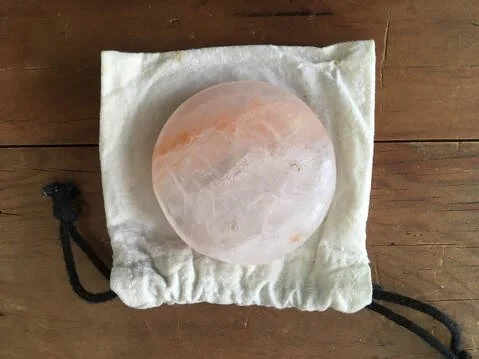Himalayan Salt Deodorant
Do you ever find yourself at the French Broad River staring at piles of plastic litter wondering what you can do to stop this? Asheville GreenWorks and our sister page, Going Plastic Free, are here to help you make this happen! Mind Your Plastic May is a month-long campaign to inform you about the grave social and environmental harms that ensue from plastic waste and equip you with the knowledge to reduce plastic in your own life.
All month long, we will be sharing plastic reduction tips, volunteer opportunities to address plastic waste, educational materials featuring local Asheville businesses, and much more. We aim to foster knowledge and encourage mindfulness around plastic consumption and disposal for individuals and business owners. This month, we hope you will follow us on Facebook and Instagram, where you will gain valuable knowledge about how to refuse, reduce, reuse, and recycle plastics, as well as learn about local waste reduction efforts.
Join our Race2Reduce and commit to decreasing your plastic usage for the entire month of May. Sign up here to join the challenge and earn points to win a $25/$50/$75 gift card to Ware!
Many thanks to the businesses and restaurants who supported this effort and are working hard to reduce their own plastic waste. #goingplasticfree
Join us in our love for the planet as we address and defeat our global plastic addition.
Mind Your Plastic May is meant to encourage and challenge us in our journey to live plastic free. These posts are created by GreenWorks staff. If you've found these posts helpful and encouraging, please consider making a donation to support this work. If you have any questions, please email sustainability@ashevillegreenworks.org.
Himalayan Salt Deoderant
You may be interested in switching to a natural deodorant for many reasons. You may be trying to avoid plastic packaging; maybe you’re concerned about aluminum or other chemicals in commercially available antiperspirants. Perhaps, you just have really sensitive skin.
Many people turn to DIY deodorant preparations, almost all of which contain baking soda. However, baking soda is a base with a significantly higher pH level than our skin. Using baking soda-based deodorants often results in a rash — sometimes first appearing after several weeks of use — which makes your armpits feel like they are on fire. If you can tolerate deodorants made with baking soda, great. If not, read on for a simpler solution.
A Himalayan salt deodorant bar/stone is usually sold as a round or egg-shaped chunk of pure Himalayan salt. It is as easy to use as crystal deodorant (alum stone), while avoiding any concerns about aluminum salts. You simply get the bar wet and then rub it onto your skin. Avoid painful scratches by rubbing the wet bar on your hands first, then rubbing your wet hands on the more delicate skin of your armpits. You are left with a layer of salt on your skin that prevents odor-causing bacteria from forming. When I first heard about using salt as deodorant, I did not believe there was any chance it could be effective. But in my experience, it holds up to sweaty workouts and lasts all day. It works better for me than any other natural deodorant I have tried. Note that this is not an antiperspirant; you will still sweat, the salt stone just eliminates the odor.
Some additional advantages of salt deodorant:
Inexpensive — one bar lasts 1-2 years
Convenient — no concoction to mix yourself
Great for travel
No suspicious ingredients, just pure salt
it’s anti-inflammatory and may even help with eczema, acne, or psoriasis
100% zero waste: available package-free at Asheville Salt Cave (or search “Himalayan salt deodorant” on Etsy or Amazon)
It’s beautiful!
Whatever reason you choose for switching to Himalayan salt deodorant, you are likely to pleasantly surprised. In the spirit of Mind Your Plastic May, why not give this all-natural alternative a try?
Sincerely,
Leslie Hayes
Leslie lives in Asheville with her husband, David, and son, Lee. She is always looking for ways to approach zero waste, especially with respect to plastic. She is a member of the Plastic Reduction Task Force.



